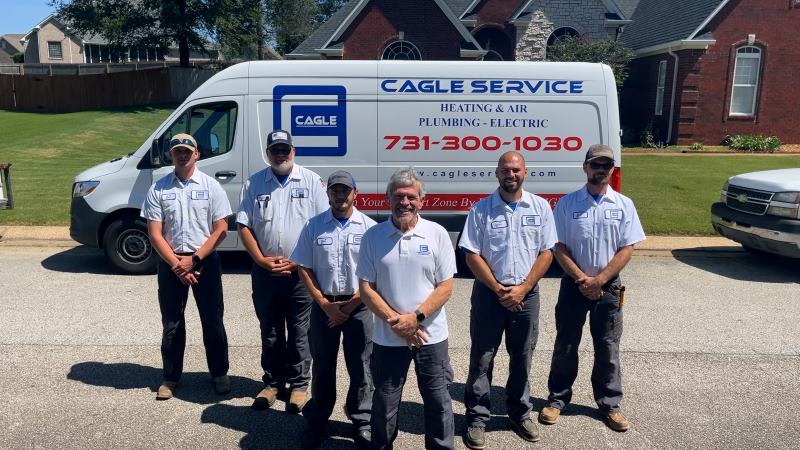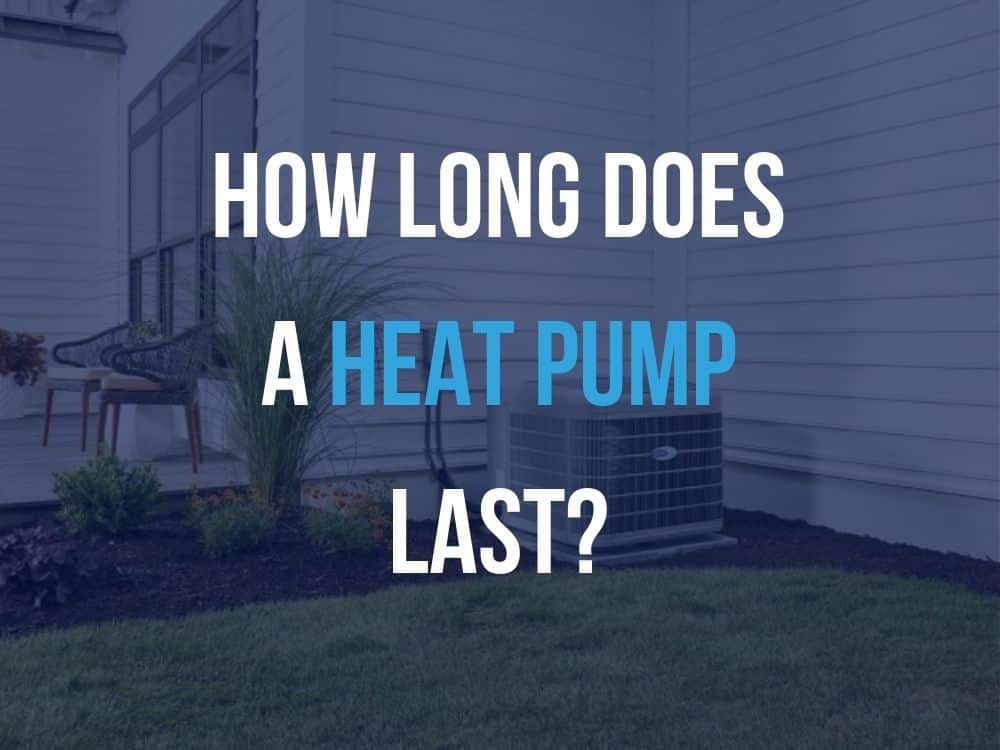Heat pumps are becoming more and more popular, especially in warmer climates such as the Jackson, TN area. Heat pumps provide both cooling and heating from one single unit which provides simplicity and convenience for homeowners. But, how long does a heat pump last? Do they last as long as an air conditioner or a furnace?
I’m glad you asked! Let’s get into the answers to these questions below.
What is the Average Life Expectancy of a Heat Pump?
The average life expectancy of a heat pump in 2021 is right around 15 years. But, that doesn’t mean that your heat pump can’t last 20 years or more. It also doesn’t mean that it will last for 15 years either. There are numerous factors that determine the lifespan of a heat pump, so to give you a better understanding of these, let’s break them down in detail next.
Related: How Long Does a Furnace Last?
Factors that Determine the Lifespan of a Heat Pump
- When the Unit was Manufactured – Obviously the age of the heat pump is going to affect its lifespan. But, here I am referring to when the heat pump was manufactured. Newer, more modern models typically last longer than older models. To be more specific, heat pumps purchased within the last 5-8 years will likely have a longer lifespan than those that are 10 years old or more.
- Proper Installation & Maintenance – It’s important to have your heat pump installed by a professional with experience. Improper installation can cause significant problems and shorten the lifespan of the unit. Having yearly routine maintenance performed on your heat pump is also essential if you want to get the most out of it. Much like a vehicle, if maintenance is neglected, problems can occur and significantly reduce the lifespan of the vehicle.
- Location – If you live in a location where the temperature regularly drops below freezing during the cooler months, your heat pump might suffer because it has to work extra hard to heat your home. Heat pumps provide heat, but they are less effective when the temperature drops below freezing. Coastal climates, such as Florida, can also take a toll on heat pumps and their components due to the salty atmosphere that they are exposed to. Heat pumps do best in warmer, inland climates that don’t drop below freezing for long periods of time.
- Usage Amount – Like any machine, the more it is used the more its lifespan is reduced. For example, if your heat pump has to run constantly because of poor insulation or because the heat pump itself is undersized, then it’s likely going to break down sooner than it would under normal conditions. So, it’s important to have a properly sized unit and to make sure there aren’t other factors that are causing it run more than necessary.
When Should You Replace Your Heat Pump?
Considering that the average lifespan of a heat pump is 15 years, it’s not a bad idea to starting considering and planning for replacement around that time. But, as they say, if it ain’t broke don’t fix it!
Unless you are simply wanting to upgrade your heat pump to a more efficient option, there’s really no reason to replace it if it’s still operating properly. But, if your unit has an expensive repair that is needed or is constantly having problems, it might be more cost-effective to replace it, especially if it’s 10 years old or more. Most HVAC units come with a 10 year parts warranty which would help with repair costs. But, if the unit is beyond 10 years old, all repair costs fall solely on you.
Related: Should I Replace My Air Conditioner?
Final Thoughts
While the average lifespan of a heat pump today is around 15 years, it doesn’t necessarily mean that your heat pump is going to last 15 years. It might last longer and it might not make it to 15 years. Trusting a professional with installation, keeping your unit clear of debris, and properly maintaining your heat pump will help ensure its longevity.
When it comes to replacing your heat pump, there’s really no set amount of time as to when it should be replaced. If it’s operating as it should, we say just stick with it! But, if it’s older and is becoming a money pit, it’s probably a good idea to consider a replacement unit.
Well, that’s all for us. We hope this information has helped you! If you have any questions or comments feel free to leave them in the comments section below.



